The Vivo X70 Pro is an excellent camera phone with a slim, slick design, but under the hood, it's not quite as powerful as the X60 Pro
Should I Buy The Vivo X70 Pro?
Pros
- Impressive quad-camera
- Sleek, impressive design
- Long battery life
Cons
- Downgraded chip from last gen
- Poor speakers
- App clutter
Our Verdict
Price When Reviewed
- ¥4,299 (from around $670)
The Vivo X70 Pro is one of three phones in the X70 series – launching alongside the X70 and the X70 Pro+. If you’re looking for an impressive camera set-up, a sleek build and a great battery life, then this phone could be one to consider.
As with several other models by Vivo, it isn’t yet available in the UK or US. If you’re happy getting a handset imported to pop a SIM in, then read on for our full thoughts of the Vivo X70 Pro.
Design And Build
- Slim and lightweight
- Great aesthetics
- No headphone jack
As usual, Vivo has produced an extremely premium and eye-catching handset. It may be ever so slightly denser and heavier than its predecessor – at 7.99mm thick and with a weight of 183g – but it feels lightweight and is extremely slim for slipping in pockets.
I tested out the more understated matte Cosmic Back variant but there's also an Aurora Dawn shimmery finish. The slim shape doesn’t compromise on the screen either, with a large 6.56in display with curved edges. Not all phone manufacturers manage to marry a decent screen with a slim body, highlighting how Vivo is ahead of the pack.
Ports-wise, there's the usual USB-C for charging, along with the power and volume controls on the right-hand side.
There’s no headphone jack on the X70 Pro – an increasingly common trend on flagship phones these days, however, the box does come with a 3.5mm headphone jack to USB-C adapter – not always a sure-fire inclusion in cases like these.
Display And Audio
- 120Hz AMOLED display
- Full HD+ panel
- Unimpressive speakers
The rear design is complemented by a stunning Full HD+, 6.56in, 120Hz, AMOLED display. This is only interrupted by the punch hole camera module, which sits at the top of the phone's display, in the centre.
The colours are rich and bright, and the textures are extremely detailed. It’s a treat for watching videos on and the 240Hz touch sampling rate also means that mobile gaming feels superb. The refresh rate can alter between either 60Hz, 120Hz and smart switch, which will choose the optimum setting, depending on what you’re doing.
In addition, there are other flagships that boast QHD+ panels, rather than Full HD+ resolution, even if it's difficult to spot the difference in actual use, due to the higher pixel density; technically it’s still a drawback worth keeping in mind.
The under-display fingerprint sensor is occasionally iffy to use, especially after washing your hands. Fortunately, you can easily get around this by using face unlock, or a password.
The X70 Pro is also fitted with a single, bottom-firing speaker, rather than a stereo set-up. The sound isn’t anything impressive – details are lost, the audio isn’t the loudest and bass tones don’t have that 'thump' which you can find on other flagships, such as the Asus ZenFone 8.
Specs And Performance
It’s worth noting that there’s actually two versions of the X70 Pro, which change the internals of the phone. In China, the X70 Pro comes with an Exynos 1080 chipset and LPDDR5 RAM.
The chipset on the X60 Pro is a Snapdragon 870, which performs better in our benchmarking tests, proving that the X70 Pro is a slight downgrade from it's predecessor, when it comes to internals:
That said, real-world performance isn’t anything to sniff at. The phone is fast and responsive, even when taking on heavy-duty tasks. It's likely that Vivo opted for the slightly less powerful chip in order to stop the price tag from sky-rocketing.
If you'd prefer better performance, then you can always splash out for the Vivo X70 Pro+, too.
Camera
- Excellent quad-camera setup
- Great zoom capabilities
- HDR enhancement is sometimes iffy
Most people will buy this phone for its camera capabilities, and fortunately, the Vivo X70 Pro doesn’t disappoint.
It’s made up of four lenses: a 50Mp main lens with an f/1.75 aperture, a Sony IMX766V sensor complete with Vivo's Gimbal Stabilisation 3.0, a 12Mp ultrawide lens with an f/2.2 aperture, a 12Mp 2x telephoto lens with an f/1.98 aperture and an 8Mp 5x periscope lens with an f/3.4 aperture.
On the front, there's a 32Mp selfie camera with an f/2.45 aperture. All the lenses are engineered with ZEISS optics too.
Gimbal stabilisation helps move the lens around (even through rotational axes), to help minimise any unwanted shakes you get when shooting. When combined with the large aperture on the main lens, the results are bright, sharp photos.
I took most of the photos on the X70 Pro in Iceland under very cold conditions, where my hands were shaking, and it was remarkably easy to take a very impressive shot, even in lower light. Details and textures of all types jump out on the screen, including water and steam.
HDR and Zeiss natural colour modes are turned on automatically, but you can switch these off should you wish. The only issue I found is that on occasion, these enhancements would give the rear camera either an odd blue tint or a washed-out white one. Turning the modes off would fix this problem.
As with most other phones, there is a drop in quality when shifting to the ultrawide lens, with slightly fuzzier details and more washed-out tones. However, it’s still good for travel shots or group photos and still manages to take decent photos, even of subjects in motion.
Both the telephoto and periscope lens ensure that zoomed-in photos still retain a lot of detail and colour. I took some shots of glaciers, and the contrast between the sunset and mountains looked very impressive, even at 5x zoom. You can digitally zoom in up to 60x, but the quality drops quite significantly here.
The front 32Mp selfie camera also produces excellent, realistic-looking images, and the colours on this lens are a little more on the natural side, which is nice to see.
Beauty mode is enabled automatically, which smooths out skin tones, takes away marks such as freckles and changes the shape of your features. I'm not a fan of this trend, as it gives an unrealistic look to selfies, and it certainly shouldn't be enabled as default.
The Vivo X70 Pro can shoot video up to 4K at 60fps, and includes two modes for gimbal stabilsation. There's also the option to shoot with the bokeh effect. Colours aren't quite as impressive as what you'll see in photos, but details are still crisp and clear.
Battery Life
- Nealy two days of real-world use
- 44W fast-charging
The Vivo X70 Pro is fitted with a 4450mAh battery. Whilst this isn’t the biggest around, it still manages to deliver strong longevity. I could get just under two days of use, taking photos, using social media, watching YouTube and more, in between daily tasks.
This is also backed up by our battery test, in which the X70 Pro managed 13 hours and 25 minutes; much longer than the X60 Pro’s time of 9 hours and 33 minutes. Battery life seems extremely durable – a rare thing among many flagships.
Unfortunately, there is no wireless charging support on the X70 Pro.
Software
The OS is another thing that changes depending on if you have the Chinese or international version of the X70 Pro. The former runs on OriginOS 1.0, a new OS introduced just for this market. The latter (which I tested), runs on FunTouch OS 12.
Android fans will find this experience pretty similar to the stock version, with all the Google software you need and a simple dropdown menu for all the main settings.
FunTouch typically comes with a lot of app bloat and clutter though, and this is no different on the X70 Pro. Some apps can be deleted, but not all of them.
The phone I tested ran on Android 11, but from December 2021, the beta version of Android 12 will roll out across Vivo X70 Pro devices – according to Funtouch OS. The Vivo X70 Pro+ has already started to receive this update.
Price And Availability
The Vivo X70 Pro costs start from CNY¥4,299/INR₹46,990 for the 8GB RAM model, which works out to around £470-£480/US$630-$670. These prices are converted, and if the phone does release in the UK and Europe, it is likely to be pricier.
As an example, the Vivo X60 Pro's international pricing converts to £500, but official UK pricing starts from £749.
You won’t be able to buy it on contract in the UK or US, but you can get the handset imported from the likes of AliExpress. We don’t know for sure yet if this phone will release in UK stores. If it does, we’ll update this article with official UK pricing and eligible retailers.
Vivo doesn't typically release phones in the US, so if you're in America, you'll have to settle for an imported version.
You could also consider the Vivo X60 Pro, if you would prefer a UK specific Vivo phone. Whilst the camera isn’t quite as impressive, it has arguably a better processor and still retains a great design.
Take a look at our list of the best Android phones for even more options.
Verdict
Most people will buy the Vivo X70 Pro for its incredible camera abilities, which are on par with some of the biggest flagships out there. However, this phone also packs a great-looking design, long battery life and a smooth AMOLED display.
There are drawbacks – the processor is a step down from the X60 Pro, the speakers are poor, and the software features a lot of clutter. And of course – at the time of writing – you can only get the phone imported into markets like the UK and US.
That said, if top-tier photography is your bag, then you should seriously consider the Vivo X70 Pro.
Specs
- Android 11 with Funtouch OS 12
- 6.56in FHD+ AMOLED, 120Hz, HDR10+
- MediaTek Dimensity 1200-vivo
- 12GB RAM
- 256GB internal storage
- 50Mp main, f/1.75, gimbal stabilisation
- 12Mp ultrawide, f/2.2
- 12Mp telephoto, f/1.98, 8Mp periscope lens, f/3.4
- 32Mp selfie camera, f/2.45
- Fingerprint scanner (in-screen)
- Bluetooth 5.2
- GPS
- NFC
- 5G
- Dual-SIM
- 4450mAh non-removable battery
- 44W charging
- Cosmic Black or Aurora Dawn
- 158.30mm×73.21mm×7.99mm/8.08mm
- 183g/184g


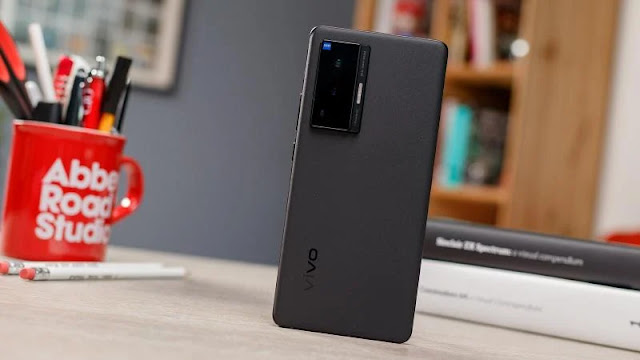
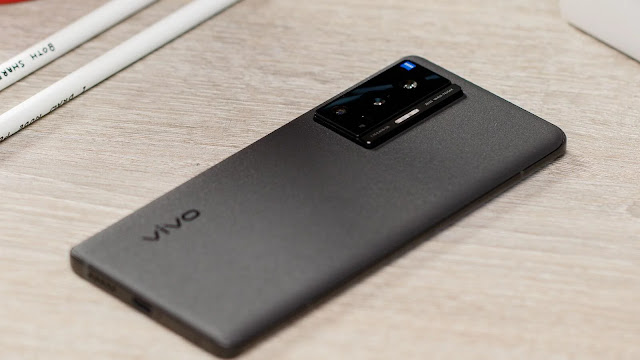
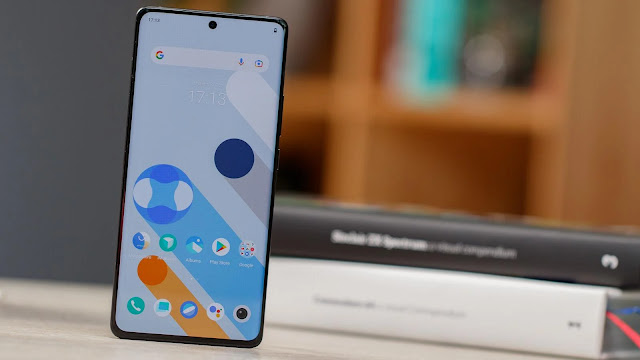


















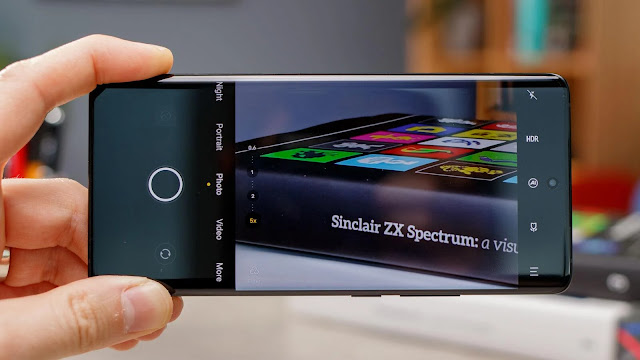
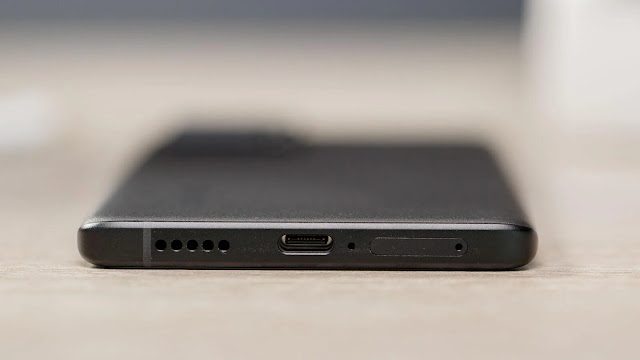
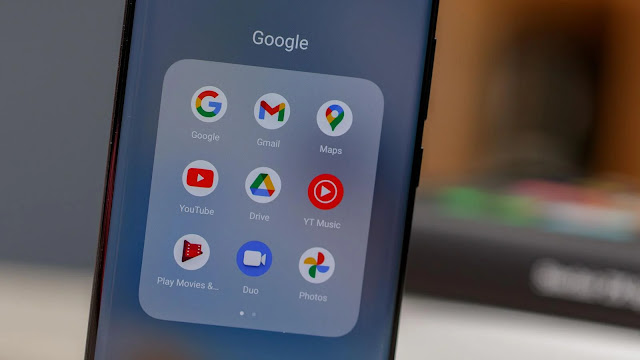
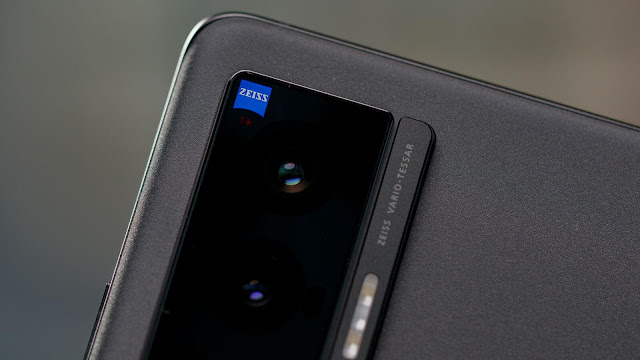
0 comments:
Post a Comment